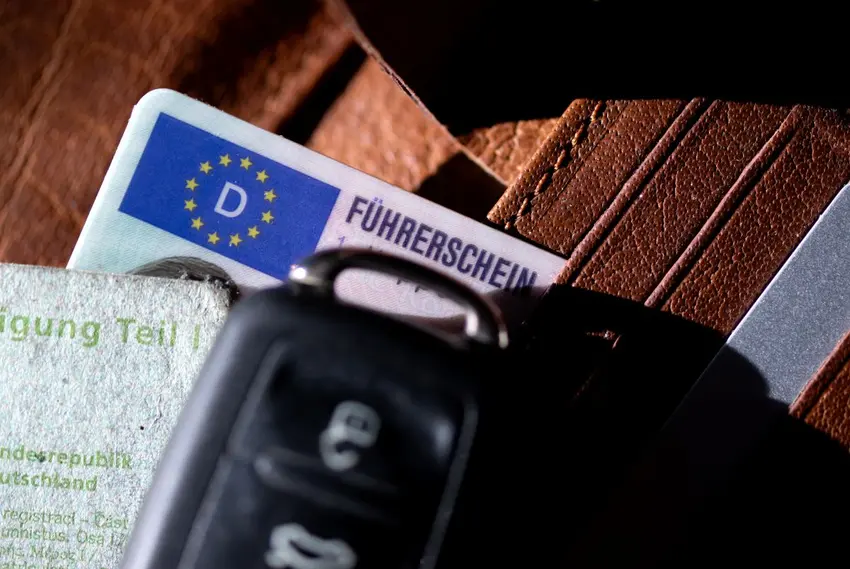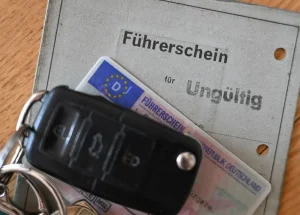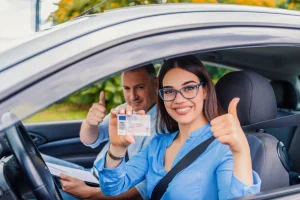How much does a driver’s license cost in Germany? Getting a driver’s license (Führerschein) in Germany is a significant investment—not just in terms of time and effort, but also money.
The total cost depends on several factors, including the type of license, the number of driving lessons required, your location (city vs. countryside), and the number of exams or retakes needed. Below, we break down a realistic cost picture for 2025 and explain why prices can vary so much.
READ ALSO:
- Can I Get My License in Canada as a Foreigner?
- Easiest Way to Get an International Driver’s License in Canada
- How to Get an International Driver’s License in Canada?
- What are Canadian Driving Rules?
- What is the Maximum Driving Hours in Canada?
Driver’s License Cost in Germany: What Makes Up the Price?
The cost of driver’s licenses in Germany varies, and we will discuss them below.
1. Base Fees (Fahrschule Registration + Theory Classes)
When you sign up for a driving school, there’s a “Grundgebühr” (base fee) that covers administrative costs and your theory lessons. This typically ranges from €350 to €565, depending on the school.
2. Learning Materials
You’ll need books, apps, or other study guides to prepare for the theory test. The cost is usually €88 to €119, depending on how much you study digitally or via physical materials.
3. Driving Lessons (Practical Training)
This is often the biggest chunk of the cost:
- Regular driving lessons (“Übungsfahrten”) typically cost €55–77 per 45-minute session.
- Special mandatory driving sessions (“Sonderfahrten”)—such as night driving, highway driving, and driving on country roads—are more expensive, around €60–95 per 45-minute session.
- How many sessions you need depends entirely on how quickly you learn. Some people may “get it” in the minimum number of lessons, but others will need more, and that drives up the cost.
4. Exams and Registration Fees
- Theoretical Exam: Around €25, though there may also be a “Vorstellung” or “presentation” fee to schedule the exam.
- Practical Exam: The fee can go up to about €130 (plus potentially extra for using the instructor’s car for the test).
- Application to Licensing Authority: When you apply for your license at the local “Führerscheinstelle,” you’ll usually pay between €38 and €70.
Other Mandatory Costs
- First-Aid Course: Before getting your license, you must attend a first-aid course. This costs roughly €50–55.
- Eye Test: Usually €6–10.
- Pass Photos (“Passbilder”): Biometric photos are required to apply; cost is around €10–20.
- Retake Costs
If you fail either the theory or practical test, you will have to pay again for the exam and possibly for extra driving lessons. This depends heavily on your personal progress, but it’s not uncommon for the cost to go up by several hundred euros if you need a retake.
Putting all these pieces together, what’s the typical cost of a driver’s license (Class B, i.e., a regular car) in Germany today?
- According to the ADAC and other sources, many people spend between €2,500 and €3,500 for a Class B license.
- In more difficult or slower cases—especially if many lessons are needed—the cost can rise to €4,000 or even more.
- According to a 2024/2025 estimate, the average cost is around €3,070.
Why is the Cost So High
- Driving Lessons Best Factored In: The number of required driving lessons is not fixed; although there are mandatory “special” trips, the regular ones depend on your progress. If you’re slower, you’ll need more sessions—and every session adds cost.
- Rising Costs for Instructors: Fuel, car maintenance, and instructor wages have gone up, pushing driving schools to raise prices.
- Administrative Fees: Registration, exam scheduling, and licensing authority costs all add up.
- High Retake Rates: If many learners fail either exam on their first try, repeat fees (exams + lessons) make the process much more expensive.
Possible Ways to Lower the Cost
- Compare Driving Schools: Prices can vary a lot from one school to another. Choosing a less “fancy” school (without high-end cars or simulators) can save money.
- Practice Outside with Someone: Although formal lessons are mandatory, if you have access to a legal driving practice setting (like a licensed driving instructor or off-road track) for “free practice,” you may reduce your paid lessons.
- Use Theory Apps: Studying theory yourself using cheaper apps or second-hand materials might reduce costs on learning materials.
- Avoid Retakes: Prepare well for the exams to avoid failing, which can blow up your cost.
- Explore Financial Aid: In some cases, unemployed individuals or trainees/apprentices may be eligible for funding (e.g., from the job center) to help cover driving license costs.
Getting a driver’s license in Germany is expensive. For a Class B license, you should realistically budget €2,500–€4,000, though the average is about €3,070.
The costs come from a mixture of mandatory lessons, tests, registration fees, and other smaller requirements like first-aid training and eye tests.
Many variables (how many driving lessons you need, whether you pass exams on the first try, and where you live) strongly influence the final cost.
With careful planning, comparison shopping, and good exam preparation, it’s possible to control some of the costs—but it’s still a significant financial commitment.
Frequently Asked Questions
1. Why are driving licenses so expensive in Germany?
Because of the combination of mandatory theory and practical lessons, the rising cost of fuel and instructor wages, and additional fees (like exams, first-aid courses, and application fees).
2. Can I pay less for a Führerschein in a small town?
Yes—driving schools in less populated or rural areas may charge less than in big cities, though the difference depends on local demand and instructor availability.
3. What happens if I fail the exam?
You’ll need to pay to retake the failed part (theory or practical), plus possibly take more driving lessons to be ready. This can significantly increase your total cost.
4. Is financial help available for getting a driver’s license?
In some cases, yes. For example, if you’re unemployed or in training, you might get support from job centers or other welfare programs.
5. Do I need to convert a foreign driver’s license, and does that cost extra?
If you have a license from another country, you might need to convert it. There are additional costs like translation, exams (sometimes), and administrative fees.




